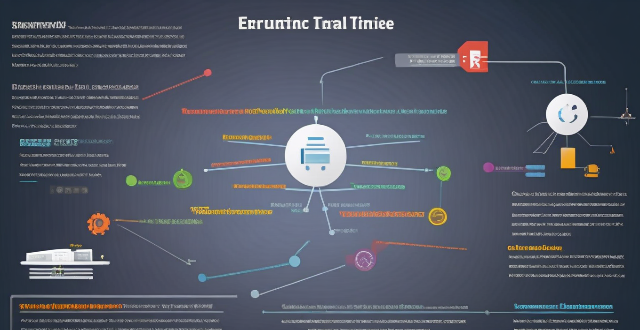Private Space

How has private investment impacted the development of space technology ?
Private investment has significantly impacted space technology development by increasing research and development funding, reducing costs, improving efficiency, and driving innovation. Private companies like SpaceX and Blue Origin have made advancements in reusable rockets, satellite communications, and lunar exploration. These investments have also enabled new business models and increased accessibility to space for smaller organizations.

What is the role of private companies in space exploration ?
Private companies have become key players in space exploration, driving technological advancements, reducing costs, and fostering innovation. They are at the forefront of developing new technologies such as reusable rockets, advanced propulsion systems, and robotic explorers. Private companies often operate with leaner budgets and more streamlined processes than government agencies, allowing them to deliver space missions at a lower cost. This cost-effectiveness is crucial for making space exploration more accessible and sustainable over the long term. Private companies are known for taking risks and pursuing innovative ideas that might not be considered by government agencies due to budget constraints or strategic priorities. Their involvement has made space missions more accessible and sustainable while opening up new possibilities for exploring our solar system and beyond.

What are the current trends in commercial space exploration ?
Commercial space exploration is a rapidly evolving field, drivenCommercial space exploration is a rapidly evolving field, driven, economic incentives, and small satellite constellations for internet and Earth observation, space tourism and commercial space stations, Moon and Mars exploration, in-space manufacturing and resource utilization, and international cooperation and legal frameworks. These trends demonstrate that commercial space exploration is not only expanding our knowledge of the universe but also creating new industries and opportunities for economic growth.

What is the future of space tourism and its implications on Earth's resources ?
The development of space tourism by private companies like SpaceX, Blue Origin, and Virgin Galactic may make it more accessible to the public in the future. However, it raises concerns about its environmental impact, economic considerations, ethical concerns, and long-term sustainability. It is crucial to consider these implications to ensure responsible use of Earth's resources while exploring space tourism.

Is space travel only for astronauts or can ordinary people go too ?
Space travel, once a distant dream, has become a reality with the advent of commercial spaceflight companies. However, the question remains: is space travel only for astronauts or can ordinary people go too? In the early days of space exploration, only highly trained astronauts were selected to venture into space. These individuals underwent rigorous training and selection processes to ensure their physical and mental fitness for the challenges of spaceflight. Over time, the landscape of space travel has changed significantly. Private companies have entered the arena, offering opportunities for ordinary people to experience spaceflight. This shift has opened up new possibilities for those who dream of exploring the final frontier. Several private companies have emerged in recent years, each with its own approach to space tourism. Some of the key players include Blue Origin, SpaceX, and Virgin Galactic. While space travel may seem like an extravagant luxury, there are several potential benefits for ordinary people who choose to embark on this adventure. These benefits include experiencing weightlessness, viewing Earth from space, and advancing science and technology related to space exploration.

How can cities with limited space accommodate the construction of charging networks ?
In cities where space is scarce, building charging networks for EVs requires creative solutions. Public-private partnerships, smart urban design, and repurposing underutilized spaces are among the strategies that can help integrate charging infrastructure into compact city environments. Encouraging residential charging, investing in modular and mobile units, implementing digital management systems, and integrating charging infrastructure into public transit systems are also effective approaches. By employing these tactics, cities can create a robust charging network that supports electric vehicle adoption, even in densely populated areas with limited space.

How much does it cost to travel to space ?
The cost of traveling to space varies depending on the type of mission, duration of stay, and provider. Suborbital flights are the most affordable option, while lunar and Mars missions are significantly more expensive. Factors such as training, technology, and risk contribute to the high costs. As technology advances and more companies enter the industry, the cost may decrease, but space travel is unlikely to become affordable for the average person in the near future.

Who are the major companies involved in commercial space travel ?
Commercial space travel has become a reality with the advancements in technology, and several companies are making significant contributions to the industry. Major companies involved include SpaceX, Blue Origin, Virgin Galactic, Boeing, and Sierra Nevada Corporation (SNC). These companies are developing reusable launch vehicles and reliable rocket engines, as well as spacecraft designed to carry cargo and humans to and from low Earth orbit destinations such as the International Space Station. Their unique technologies and innovations aim to make space travel more accessible and affordable for both scientific research and tourism purposes.

What are the benefits of investing in private equity ?
Investing in private equity offers higher potential returns, diversification benefits, active management and control, access to unique opportunities, tax efficiency, and a disciplined approach to investing. However, it also comes with risks such as illiquidity, high entry barriers, and the need for specialized knowledge. Proper due diligence and consideration of one's overall investment objectives and risk tolerance are essential before committing capital to private equity.

How does private equity affect corporate governance ?
Private equity (PE) plays a significant role in shaping the governance of companies. It can have both positive and negative impacts on corporate governance, depending on various factors such as the PE firm's strategy, the nature of the investment, and the target company's existing governance structure. This article will explore the ways in which private equity affects corporate governance. ### Positive Impacts of Private Equity on Corporate Governance - **Improved Decision-Making Processes**: Private equity firms often bring fresh perspectives and expertise to the decision-making processes within a company. They may introduce new management practices or technologies that enhance efficiency and productivity. This can lead to better strategic planning and more informed decisions being made by the board of directors. - **Greater Transparency and Accountability**: Private equity investors typically demand greater transparency and accountability from the companies they invest in. This can result in improved financial reporting, regular board meetings, and increased communication between management and shareholders. Such measures help to ensure that all stakeholders are kept informed about the company's performance and future plans. - **Increased Focus on Long-Term Value Creation**: Private equity firms generally have a long-term investment horizon, which means they are more likely to focus on creating value over the long term rather than pursuing short-term gains. This can lead to a greater emphasis on sustainable growth, innovation, and responsible business practices. ### Negative Impacts of Private Equity on Corporate Governance - **Potential Conflicts of Interest**: Private equity investors may have conflicts of interest with other stakeholders, such as employees, customers, or suppliers. For example, a PE firm might push for cost-cutting measures that negatively impact employee morale or customer satisfaction. These conflicts can undermine good governance practices and harm the company's reputation. - **Pressure for Short-Term Profits**: While some private equity firms focus on long-term value creation, others may prioritize short-term profits at the expense of long-term sustainability. This can lead to excessive risk-taking, aggressive financial engineering, or even fraudulent activities aimed at boosting short-term earnings. Such behaviors can ultimately damage the company's reputation and financial health. - **Lack of Diversity in Board Composition**: Private equity firms often control a majority of the seats on a company's board of directors. This can limit diversity in terms of gender, ethnicity, and professional background among board members. A lack of diversity can lead to groupthink and reduce the effectiveness of the board in providing independent oversight and guidance to management. In conclusion, private equity has both positive and negative effects on corporate governance. The key is for PE firms to balance their pursuit of profit with a commitment to ethical business practices and responsible stewardship of the companies they invest in. By doing so, they can help build stronger, more sustainable businesses that benefit all stakeholders.

How does space exploration benefit humanity ?
The benefits of space exploration for humanity include technological advancements, economic growth through job creation and commercial opportunities, global collaboration fostering peace, scientific discoveries about our universe, inspiration and education for future generations, preserving Earth by monitoring environmental changes, and national security measures. These benefits touch every aspect of human life, making space exploration a significant investment in our collective future.

What are some notable private equity firms ?
Private equity firms are investment companies that pool funds from various investors to acquire and manage private companies, typically investing in undervalued or distressed businesses, restructuring them, and selling them at a profit. Some of the most notable private equity firms include Blackstone Group, The Carlyle Group, Kohlberg Kravis Roberts & Co. (KKR), TPG Capital, and Warburg Pincus. These firms have diverse portfolios and investment strategies, with assets under management ranging from $600 billion to $79 billion as of 2022.

How does private equity differ from public equity ?
Private equity and public equity are two different types of investment vehicles that offer distinct characteristics, benefits, and risks. Private equity refers to investments in companies that are not publicly traded on stock exchanges, while public equity refers to investments in companies that are publicly traded on stock exchanges. Key differences between private equity and public equity include accessibility, liquidity, regulation, investment horizon, and returns. Private equity investments are typically only available to accredited investors, such as institutional investors, high net worth individuals, and family offices. Public equity investments are more accessible to a wider range of investors, as anyone can buy shares of publicly traded companies on stock exchanges. Private equity investments are generally illiquid, meaning it can be difficult to sell your stake in a company if you need to exit the investment. Public equity investments are highly liquid, as shares of publicly traded companies can be easily bought and sold on stock exchanges. Private equity firms are not subject to the same level of regulation as publicly traded companies. This allows them greater flexibility in managing their investments and making strategic decisions without the scrutiny of public markets. Publicly traded companies are subject to strict regulations and reporting requirements set by regulatory bodies such as the Securities and Exchange Commission (SEC). Private equity investments typically have a longer investment horizon than public equity investments. This is because private equity firms focus on long-term growth and value creation within the companies they invest in. Public equity investments can be held for shorter periods of time, as investors can easily buy and sell shares on stock exchanges based on market conditions and personal financial goals. Private equity investments often aim for higher returns than public equity investments, as they involve higher levels of risk and illiquidity. However, these returns are not guaranteed and depend on the success of the companies being invested in. Public equity investments may offer more stable returns over time, as publicly traded companies tend to be more established and have a proven track record of financial performance. In conclusion, private equity and public equity offer different advantages and disadvantages depending on an investor's goals, risk tolerance, and investment horizon. It is important for investors to carefully consider their investment objectives and risk profile before choosing between private equity and public equity investments.

Can private sector investments play a significant role in climate financing ?
The article discusses the potential of private sector investments in climate financing, highlighting their current involvement and potential impact on various aspects such as access to larger pools of capital, innovation, risk management, and scaling up successful approaches. It also addresses challenges and considerations like alignment with public goals, transparency, inclusivity, and regulatory frameworks. The conclusion emphasizes the importance of collaboration between public and private sectors for effective utilization of private capital in climate action.

What are the risks associated with private equity investments ?
Private equity investments are a type of investment where an investor puts money into a private company, typically with the expectation of high returns. While these investments can offer substantial rewards, they also come with significant risks such as illiquidity, lack of transparency, high volatility, management risk, exit strategy uncertainty, valuation challenges, economic cycles, and legal and regulatory changes. Proper research, diversification, and patience are key to navigating the challenges associated with private equity investments.

What are the current advancements in space exploration ?
The text discusses current advancements in space exploration, including commercial space travel, Mars and lunar exploration, deep space probes, and telescopes and observatories. These advancements showcase humanity's relentless pursuit of knowledge and understanding of the universe around us.

What is the future outlook for private equity ?
Private equity (PE) is a dynamic sector of the financial industry that involves investing in or acquiring companies, typically with the aim of improving their operations and selling them at a profit within a few years. The future outlook for private equity is influenced by various factors such as economic conditions, technological advancements, regulatory changes, and market trends. Here's a detailed analysis of what the future might hold for private equity: Economic Influences: Global Economic Growth, Interest Rates, Market Volatility Technological Advancements: Digitization, Artificial Intelligence and Machine Learning, Blockchain Regulatory Changes: Stricter Regulations, Tax Laws Market Trends: ESG Investing, Diversification, Exit Strategies Industry Evolution: Consolidation, Secondary Markets, Direct Investments Challenges and Opportunities: Competition, Talent Retention, Innovation In conclusion, the future of private equity looks promising but not without its challenges. The industry is set to evolve with changing economic conditions, technological advancements, regulatory shifts, and market trends. PE firms that adapt and innovate will be well-positioned to thrive in this dynamic environment.

How can policymakers encourage private sector involvement in climate adaptation ?
To encourage private sector involvement in climate adaptation, policyTo encourage private sector involvement in climate adaptation, policy as creating incentives like tax policymakers can implement strategies such as creating incentives like tax breaks and subsidies, establishing clear regulations with compliance enforcement, facilitating information sharing through open data access and collaborative platforms, promoting public-private partnerships with joint projects and long-term commitments, enhancing capacity building via training programs and technical assistance, and recognizing and showcasing success stories through awards and media coverage. These steps will foster a collaborative environment where the private sector actively seeks opportunities to contribute to resilient and sustainable solutions for climate change challenges.

What is the difference between private and public Wi-Fi ?
Private and public Wi-Fi networks differ in terms of security, accessibility, and management. Understanding the distinctions between these two types of networks is crucial for ensuring that your internet connection is secure and optimized for your specific needs. Private Wi-Fi networks are typically password-protected, ensuring that only authorized users can connect, adding a layer of security. They offer more control over network settings and user management, allowing administrators to monitor connected devices and create network usage policies. Private networks are ideal for activities requiring secure connections, such as online banking or accessing sensitive information. Public Wi-Fi networks, on the other hand, are open or use a simpler connection method, often requiring no password or providing a generic one for all users. This ease of access makes them vulnerable to security threats such as data interception or unauthorized access to connected devices. Public networks lack robust management features and may not provide the same level of control over network settings or user activity. They are better suited for general browsing, checking emails, or using social media where the need for secure transactions is minimal. In conclusion, the choice between private and public Wi-Fi depends on your priorities regarding security, accessibility, and intended use. For secure transactions and controlled environments, private Wi-Fi is the preferred option. Conversely, public Wi-Fi offers convenience and widespread availability but requires more caution regarding security and potentially lower performance in high-traffic areas. Always consider the nature of your online activities and the importance of security when choosing between these two types of networks.

What role do private companies play in building and operating EV charging networks ?
Private companies play a pivotal role in the development and operation of electric vehicle (EV) charging networks, contributing to infrastructure development, network operation, partnerships and collaboration, and data analysis and optimization. They are involved in planning, design, construction, technology innovation, maintenance, management, customer service, pricing strategies, public-private partnerships, industry alliances, community engagement, performance tracking, and market research. Their efforts ensure that EV charging infrastructure is developed efficiently, innovatively, and with the end-user in mind.

How will commercial space tourism change the way we view Earth and space ?
The advent of commercial space tourism is set to revolutionize our understanding of both Earth and space by making space travel more accessible. It allows us to view our planet from a different perspective, fostering a greater sense of global awareness and interconnectedness, as well as an appreciation for the fragility and beauty of our planet. Additionally, it provides the opportunity for people to experience space firsthand, leading to a deeper understanding of the challenges and opportunities presented by space exploration, renewed interest in science and technology, and increased demand for education in STEM fields. Overall, commercial space tourism has the potential to change the way we view Earth and space by providing unique perspectives and experiences that can help us better appreciate our planet and expand our understanding of the universe beyond.

How does space exploration inspire future generations ?
Space exploration has been a source of inspiration for future generations in various ways, including igniting curiosity and wonder, advancing scientific knowledge, promoting international collaboration, encouraging careers in STEM, inspiring creativity and art, and nurturing resilience and perseverance. As we look toward the future, space exploration will continue to capture the imagination of young people around the world and spur them on to become the next generation of explorers, scientists, and engineers.

What are the ethical considerations of space exploration and colonization ?
The article discusses the ethical considerations of space exploration and colonization, emphasizing the importance of balancing potential benefits with risks, considering environmental impact, addressing interplanetary diplomacy, and developing a comprehensive legal and regulatory framework. It highlights the need for a strong ethical framework to ensure responsible and sustainable pursuit of space endeavors.

What should I consider when choosing a private vs federal student loan ?
When choosing between a private and federal student loan, consider interest rates, repayment options, forgiveness programs, eligibility requirements, and the application process. Federal loans usually have lower interest rates and more lenient eligibility requirements, while private loans may offer more flexibility in repayment options but typically have higher interest rates. Weigh these factors against your individual circumstances and financial goals to make an informed decision about which type of loan is best for you.

How has the involvement of the private sector influenced the strategies for global climate governance ?
The influence of the private sector on global climate governance strategies is evident in innovation, finance, and policy-making. Private companies invest in research and development of new technologies that can reduce greenhouse gas emissions and commercialize these technologies for widespread use. They lead the way in developing renewable energy sources and improving energy efficiency. In terms of finance, private companies issue green bonds and venture capitalists invest in startups focused on climate solutions. They also participate in carbon markets and create carbon offset programs. In policy-making, private companies engage in advocacy and lobbying efforts to shape government policies related to climate change and integrate corporate social responsibility into their business models. They collaborate with governments and international organizations in public-private partnerships and multi-stakeholder initiatives. Overall, the involvement of the private sector has significantly influenced global climate governance strategies by driving innovation, providing financial resources, and shaping policy decisions.

What are some creative ways to quickly declutter and organize a small space ?
To quickly declutter and organize a small space, start by identifying problem areas and setting clear goals. Sort and categorize belongings into "keep," "donate," "sell," or "trash" piles. Maximize storage through vertical space, multifunctional furniture, and transparent containers. Get creative with storage solutions by repurposing household items and DIY projects. Finally, maintain order with regular cleaning and the "one in, one out" rule to prevent clutter buildup.

How does space exploration impact global cooperation and diplomacy ?
Space exploration has been a significant driver of global cooperation and diplomacy since the dawn of the space age. The pursuit of understanding our universe and the quest to explore beyond Earth's boundaries have fostered international collaboration, technological advancements, and diplomatic engagements that transcend traditional geopolitical tensions. In this discussion, we will delve into the various ways space exploration influences global cooperation and diplomacy.

How sustainable is the commercial space industry, and what environmental concerns should be addressed ?
The commercial space industry is facing environmental concerns such as carbon emissions, space debris, natural resource depletion, and radioactive waste disposal. To address these issues, companies can adopt sustainable practices, invest in new technologies, and explore alternative materials and energy sources. By doing so, they can reduce their impact on the environment and contribute to a more sustainable future.

What are the current advancements in space travel technology ?
Over the years, scientists and engineers have made significant advancements in various aspects of space travel. Current advancements include propulsion systems like ion thrusters, nuclear propulsion, and solar sailing; life support systems that recycle water and air and closed-loop life support systems; and reusable spacecraft such as the Space Shuttle program, SpaceX Dragon and Falcon 9, and Blue Origin New Shepard. These advancements show great promise for the future of human exploration beyond our planet.